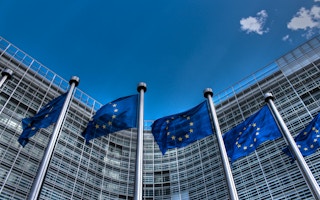Last Thursday’s vote by the UK public in a referendum to leave the European Union (EU) is a seismic shock to British, European and global politics. This is a difficult moment to write about it. Everybody will need time to adjust.
An uncertain future
We do not yet know when the UK will trigger the formal process of leaving the EU, how long that process will last, and what form the UK’s future relationships with the EU will eventually take.
The strong sentiment in Scotland to remain in the EU indicates clear momentum for another referendum for Scottish independence – but again timescale and mechanisms are uncertain. We do not know who will take over from David Cameron.
Perhaps the biggest uncertainty is the future shape of European politics. These are uncharted waters. The EU’s primary purpose has always been peace; some commentators now predict its disintegration.
Maybe the remaining countries of the EU will react with vision and purpose to the shock of Brexit and address the most serious issues within what George Soros reasonably describes as a ‘flawed construct’. But the risks are great.
The global lens
IIED was formed with an international purpose – to promote, as Barbara Ward, our founder, put it, “the care and maintenance of a small planet”. Our driving motivation is to promote social and environmental justice on a global scale.
So we have serious concerns at this moment. What will the implications of the UK leaving the EU be for taking forward the Paris Agreement on climate change? Will the UK still be a leading voice for global development and humanitarian action?
Might Brexit be the leading edge of a populist revolt against the multilateral institutions which are necessary to tackle global challenges – inequality, conflict, trans-national criminality, cyber security, human mobility, protecting the natural world and, above all, climate change?
Multilateral institutions can be slow, cumbersome, and often not particularly democratic. They are easy scapegoats. For example, no one setting out to design effective global governance with a blank sheet of paper would come up with the current United Nations system. But it is what we have, and we need it to work as well as it possibly can.
“
The values behind the SDGs and the Paris Agreement – equity, sustainability and universality – are more important than ever, and the UK’s continued engagement is vital.
So my first wish for a post-referendum UK is for it to stay committed to multilateralism, global solidarity and being at the forefront of addressing global challenges. The UK outside the EU should remain as strong and constructive a voice for global climate, development and humanitarian action as it was inside.
But there are obvious political risks to that. The commitment to maintain the UK’s international development budget will certainly be a contested area – and an important indicator of whether an internationalist spirit lives on.
Leave no one behind – nationally as well as globally
The referendum has also highlighted the universal relevance of the global development agenda, as expressed in the Sustainable Development Goals (SDGs). Clearly many of the UK citizens who voted to leave the EU belong to social groups who feel profoundly ‘left behind’ and left out of social, economic and political progress.
As the work of Branko Milanovic clearly illustrates, the middle and working classes of OECD countries have not seen any progress in terms of income and standard of living for 30 years. At the same time they have watched the wealth of the super-rich soar. This creates fertile ground for the political populism visible now across many OECD countries.
The UK’s ‘leave’ vote was a complex event, but it clearly reflects global trends. Issues with less direct relevance to the topic at hand than many people realised – notably immigration – dominated the public debate.
Two fault lines stood out in the voting patterns: first, young people voted overwhelmingly to remain in the EU, and older voters voted overwhelmingly to leave; second, the vote to leave was tipped over the line by an unexpected swing in the ever-poorer former heartlands of UK industry.
This was painted by some as a revolt by a forgotten class against an arrogant elite. Anger over lost opportunities, services and even pride finding an outlet. Populism feeds on economic decline and insecurity and legitimates a worldview hostile to regional and global institutions.
The notion that we must take the ‘leave no one behind’ mantra of the SDGs seriously in all countries – including OECD ones – is not empty rhetoric. So it was heartening to see Germany commit to taking on board the spirit of the SDGs in its own policy and planning process.
Germany will present its plan for implementing the SDGs at the High Level Political Forum in July. The UK government has in contrast made an insufficient response to domestic implementation – as was pointed out by the report on the UK government’s implementation of the SDGs by the International Development Committee of the UK Parliament.
Far more in common than that which divides us
A terrible tragedy happened during the referendum campaign. Jo Cox – one of the brightest stars of our generation of UK international development professionals and more recently a much loved and respected MP – was murdered.
In her maiden speech to the UK Parliament, speaking about her Yorkshire constituency, Jo had emphasised that we have far more in common than that which divides us. It is a strong message and a necessary one for the turbulent times ahead.
Working together to combat rising inequality and promoting inclusion and security of livelihoods is as important in Germany and the UK as in the poorest countries. Losing membership of the European Union must not mean that the UK withdraws from the great global challenges of our time.
The values behind the SDGs and the Paris Agreement – equity, sustainability and universality – are more important than ever, and the UK’s continued engagement is vital.
Andrew Norton (andrew.norton@iiied.org) is director of IIED. This post is republished from IIED.


















